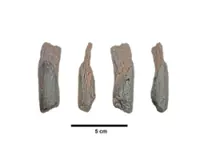A SCRATCHY prerecorded message crackled over American Armed Forces radio in Saigon 50 years ago, announcing the temperature was “105 degrees and rising”, before playing a snippet of White Christmas.
It was a covert signal – the emergency evacuation had begun.
After 15 years of fighting, US$140bil in military spending, and 58,220 American lives lost, the last US foothold in Saigon was collapsing.
The Vietnam War was ending. Or was it?
As the United States marks a half-century since that chaotic April day in 1975, veterans say the war still echoes through American culture, politics and their own lives.
And its lessons, they argue, remain unlearned.
Iconic images of the fall of Saigon – crowds scrambling onto the US embassy roof, desperate for the last helicopters out – remain seared into the nation’s memory.
“We watched the city die right in front of us,” recalled Douglas Potratz, a Marine veteran based at the embassy. “So many had died, and it was all for nothing.”
Then a 21-year-old sergeant, Potratz helped hundreds flee before boarding the penultimate chopper.
“Some of us cried,” he said. “Others were too exhausted to feel anything.”
Now 71, Potratz said the war’s scars linger.
At their five-year reunions, he’s seen how anger, depression and regret haunted fellow Marines. Six have died by suicide.
“The trauma was immense,” he said. “Many didn’t realise they needed help until decades later.”
The Vietnam War left a festering wound in American life.
The US military, the world’s most advanced, had entered Vietnam’s civil war in the early 1960s, expecting a swift victory over communist insurgents.
“Our machine was devastating. And versatile,” wrote war correspondent Michael Herr in his 1977 memoir Dispatches. “It could do everything but stop.”
By Potratz’s arrival, the war was a brutal stalemate. The United States had withdrawn most troops but still funded South Vietnam’s army. Few foresaw its sudden collapse.
“We thought it impossible,” Potratz said. “Then North Vietnamese jets strafed Saigon, and tanks hit the airfield.”
Panicked crowds stormed the embassy. Marines frisked evacuees, tossing confiscated weapons into the pool, and loaded choppers bound for US ships.

The 24-hour airlift barely made a dent.
Finally, the exhausted Marines retreated, barricaded the doors, jammed the elevators and burned classified documents on the roof.
By dawn on April 30, only a handful remained, watching smoke rise as desparate Vietnamese civilians rammed the embassy walls with a fire truck.
Two helicopters finally arrived. The Marines shed gear, piled in and fled.
“It all collapsed on us,” Potratz said.
He paused, then added: “But now, I feel like I’ve seen it in Iraq, in Afghanistan, in Ukraine. It’s almost spooky.”
Saigon’s fall triggered decades of national reckoning.
Distrust seeped into pop culture – like 1982’s Rambo, where the hero’s enemy is his own government.
For the next 30 years, candidates for president tried to both condemn the Vietnam War and honour those who fought in it, while accusing opponents of being skaters, fakers and draft dodgers.
When the United States invaded Iraq and Afghanistan, political leaders argued over whether those conflicts were exactly like Vietnam or nothing like it.
Then came Kabul’s fall in 2021 – desperate crowds, frantic Marines – a grim replay.
“The harmonics of Vietnam have reverberated in some really tragic ways,” said James Moriarty, a trial lawyer who was a Marine helicopter door gunner during the height of the fighting in Vietnam.
“I realised within a week we weren’t winning,” he said.
“But I believed our leaders knew what they were doing. Later, I learned we’d been lied to.”
The disillusionment drove Moriarty to become a lawyer, challenging powerful institutions.
“Those in charge lie, they harm and politicians lack the courage to stop it,” he said.
The war’s tragedy hit hardest in 2016, when his son – an Army Green Beret – was killed in Jordan. His son was there as part of a Middle East strategy shaped by the American experience in Vietnam.
“I was devastated,” Moriarty said.
“And for the first time, I understood how devastated all the families in Vietnam, on all sides, must have felt.”
Many veterans fear those lessons are forgotten.
Mike Vining, an Army specialist in Vietnam, later joined Delta Force, a counterterrorism unit that he said was created by combat veterans of the wars in South-East Asia.
The lesson, he said, was that focused use of units like Delta often worked better than massive deployments.
“Don’t poke a hornet’s nest, then try to kill every hornet,” he said.
But, he noted, that was more or less what happened in Iraq and Afghanistan.
Vining said that to veterans like him, the Pentagon seems to keep repeating its mistakes of 50 years ago.
“They just don’t seem to learn,” he said. “I just don’t understand it.” — ©2025 The New York Times Company
This article originally appeared in The New York Times





